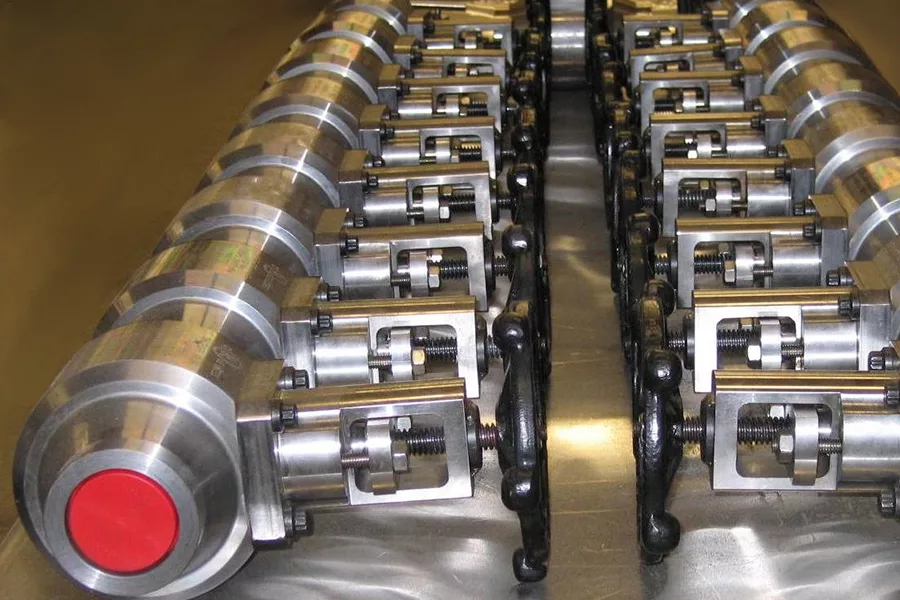
Home » FCCI named top vit plant supplier after aligning with Bechtel
FCCI named top vit plant supplier after aligning with Bechtel

December 15, 2021
A Richland company catering to U.S. Department of Energy contractors found success by aligning itself with the needs of one of the biggest operators at the Hanford Nuclear Reservation: Bechtel National Inc.
Bechtel recognized Fluid Controls and Components Inc., or FCCI, with one of four 2020-21 Global Supplier Awards for its contributions to the Hanford Waste Treatment and Immobilization plant, known as the vit plant. The other recipients were Pacific Office Automation, Inland Asphalt Co. and Petersen Inc.
The vit plant, with an installed cost of $12 billion, will treat 53 million gallons of radioactive tank waste by encasing it in glass for long-term storage. The plant will be the world’s largest radiological chemical processing facility.
The honor recognizes FCCI for its expertise in certifying that valves, piping and related components used at the project meet nuclear standards and for sourcing 108,000 pounds of “frit,” a mixture of chemicals that Bechtel will use when it heats up the plant’s high-temperature melters this winter.
The melters are where waste will mix with glass-forming materials and is at the heart of the vit plant process. Heating them up is a key step before the plant begins treating Hanford’s legacy waste.
The supplier award recognizes a 20-year partnership between FCCI and Bechtel that is no accident, said Russ Watson, vice president for FCCI.
The company has an office and fabrication facility in Richland’s Kingsgate area. It is a subsidiary of Dupill Group Companies, a Pennsylvania-based supplier to the energy services industry.
FCCI had worked extensively with Hanford contractors, including Fluor and Parsons.
But when executives decided to chart a course for the company about 20 years ago, Watson said it was clear its focus needed to be on Bechtel and the vit plant. It would determine what Bechtel required and adapt its business model and procedures to comply.
“We felt this would be a much better way to learn to work within the federal government nuclear arena,” he said. “We made the decision that we would explore Bechtel procedures and incorporate them in our business activities regarding our responses to them.”
It was not easy. He credits FCCI’s Project Manager Carly Perigo for navigating successfully.
“We thought we were clever, but it was a more complex world than we expected.”
FCCI made Bechtel its mentor and credits the move with its success.
FCCI serves as a sort-of gatekeeper for many of the components used to construct the plant.
It tested and examined that the pipes, valves, instrumentation and other equipment headed to the construction site, whether produced in its own facility or by other vendors, met Bechtel’s exacting requirements.
That included tensile testing, hardness testing, bend tests, chemical analysis and hydrostatic testing, among other steps. When that was done, it ensured components matched the documentation provided by manufacturers and foundries.
“We provide a nuclear pedigree to those components if they’re destined to the nuclear industry,” Watson said.
FCCI shipped 9,000 valves accompanied by 13,000 documents to the vit plant. Watson said it has a 99% success rate.
As construction gives way to testing and start up activities, FCCI stepped outside of its customary role to provide the frit, which serves as a stand-in for glass-forming materials during heat up.
Watson said sourcing frit was not in its usual wheelhouse. It used the same verification processes that it uses for parts to ensure the material met Bechtel’s specifications for chemistry and physical profile. The contract was worth about $750,000.
The frit supplied by FCCI will be used in during heat up but not during actual operations. A separate Tri-City firm, Pasco’s Two Rivers Terminal, secured the contract to provide the glass-making materials that will be used in the actual vitrification process.
Watson said its success with the vit plant has led to more work with other Bechtel projects.
FCCI estimates that has been worth about $6 million in the past five years, with projects at the Uranium Processing Facility in Oak Ridge, Tennessee, the Blue Grass Chemical Agent Destruction Pilot Plant in Richmond, Kentucky, and the Pueblo Chemical Agent Destruction Pilot Plant in Pueblo, Colorado.
It designed a valve for NASA’s Mobile Launcher 2 as well.
Watson said FCCI has been honored to be part of the vit plant project and the government’s obligation to clean up the radioactive legacy of decades of weapons production.
“We have a societal obligation to get this job done. We have some of the most technically capable people to accomplish this. We need to get this done. We share this mission,” he said.
Looking forward, FCCI is intrigued by the emerging technology of small modular reactors and their potential to provide carbon-free power.
“We know it’s green power. We know the technology has come a long way. We know the waste footprint is very small. It can provide a lot of power. Whatever company is most active, we want to be there with them,” Watson said.
Local News
KEYWORDS december 2021





